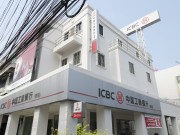Bain & Co Global M&A Report 2022: What the Best Companies Must Do to Win in a White-Hot Market
12th February 2022 | Hong Kong
Top management consulting firm Bain & Company has released the annual 2022 Global M&A Report. In 2021, the total value of Mergers and Acquisitions (M&A) had reached a record $5.9 trillion. Despite the high prices, new research suggests an optimistic outlook for deal activity in 2022. Bain’s global survey of more than 280 executives shows a full 89% anticipate their own deal activity will stay the same or increase this year. The environment for deal making remains fundamentally attractive, and a well-balanced mix of market signals suggest the strategic M&A market will continue to be robust. The Bain & Co. 2022 Global M&A Report look at what the best companies must do to win in a white-hot market, covering in-depth at 3 factors for deal-making executives: talent retention, ESG and the changing regulatory environment, and 15 industry-specific perspectives and 4 country-specific deep dives. Read brief summary below | View Report
“ Mergers and Acquisitions had reached a record $5.9 trillion “
Bain & Co Global M&A Report 2022

Bain & Company’s 4th global M&A report shows 89% of M&A executives expect deal activity to stay the same or increase in 2022
In 2021, corporate dealmakers raced to acquire transformative capabilities and scale rapidly amid soaring valuations. This led to a record-breaking year for M&A deal values, exceeding expectations at an unmatched $5.9 trillion. These are among the findings of Bain & Company’s fourth annual M&A report.
In a white-hot market, valuation multiples hit an all-time high of 15.4 times enterprise value/EBITDA. Tech assets, in particular, decoupled from the broader M&A market, with multiples at 25 times. Similarly, the healthcare industry saw its asset prices soar, with median multiples at 20 times.
Despite the high prices, new research suggests an optimistic outlook for deal activity in 2022. Bain’s global survey of more than 280 executives shows a full 89% anticipate their own deal activity will stay the same or increase this year. The environment for deal making remains fundamentally attractive, and a well-balanced mix of market signals suggest the strategic M&A market will continue to be robust.
While corporate-led deals grew by 47% in 2021, deals involving financial investors, special purpose acquisition companies (SPACs) and venture capital (VC) firms grew by over 100%.
“This isn’t your parents’ M&A market,” said David Harding, Bain & Company advisory partner. “If you peer beneath the headlines, the modern-day story of M&A becomes significantly more complicated. Dealmakers are grappling with increasing multiples and a growing diversity of deal types, with alternative models such as partnerships increasing. We wrote this report to help executives sort out ways M&A can create value despite these complexities.”
This new report explores the opportunities presented by the shifting landscape of the M&A market. Success in M&A requires getting a lot of things right, particularly when every asset is priced to perfection. The number one predictor of M&A success? Experience. Bain’s research continues to find that frequent and material acquirers create greater total shareholder returns (TSR) than those who possess a less robust M&A strategy.
“Companies are using M&A to keep pace with the trends transforming their industries, many of which were accelerated by Covid-19, while also navigating high prices and intense competition,” said Andrei Vorobyov, a partner in Bain & Company’s Mergers & Acquisitions practice. “While strategic buyers across industries are feeling the pain of record deal prices, they remain more affordable than public markets, which are trading at even higher multiples. Dealmakers that come out ahead in 2022 will be the ones that lean in, especially focused on the commercial opportunities brought by ESG, talent retention and revenue synergies.”
The Bain report looks in depth at three factors dealmaking executives must get right to thrive in this white-hot market: talent retention, ESG and the changing regulatory environment. It also includes 15 industry-specific perspectives and four country-specific deep dives.
Talent retention: a critical factor to deal success
M&A practitioners cite talent retention as a leading driver of M&A deal success, second only to having a clear deal thesis. M&A, at any point in time, can cause employees to worry about uncertainty and change, leading them to consider other options. This is particularly pronounced as today’s hot labor market requires a new focus on retention challenges.
In tech, for example, more than 75% of executives feel that retention is now more difficult than it was three years ago. The biggest retention risks, according to tech executives, are uncertainty about one’s role in the future organization and attractive alternatives in the labor market.
Successful talent retention requires companies to be proactive about talent in both the diligence and integration, establishing a strong and compelling vision for the future that employees can mobilize behind.
Dealmakers are behind on ESG
Although ESG is quickly becoming a marker of business quality, only 11% of M&A executives say they extensively assess ESG in the deal-making process on a regular basis. However, 65% of those surveyed expect their company’s focus on ESG to increase.
In the consumer products industry, for example, 68% of executives view ESG as a means to gain share, improving their brand image and appealing to changing consumer preferences. When looking at the energy sector, energy transition deals accounted for about 20% of all deals greater than $1 billion in 2021, and Bain expects more energy companies to use deals as a way to green existing assets in the year ahead.
ESG needs to be more than a check-list item during the M&A process, and it can take multiple forms in deals: acquisitions can be “ESG-motivated” and hinge upon an ESG thesis, or they can be ESG-conscious, pursued for other reasons but with eyes open about the ESG considerations at play. Success in this arena will require linking overarching corporate ESG strategy to M&A strategy, making sustainability a part of each deal thesis and setting ESG as a factor in delivering deal value.
The changing regulatory environment
In the US, Western Europe and China, a combination of increased antitrust enforcement and rising national security concerns are requiring executives to rethink the completion odds of many deals. The past year saw several high-profile deals abandoned due government opposition, and this scrutiny is likely to increase next year.
2021 brought new geopolitical considerations, particularly with regards to China’s crackdown on large businesses. However, it remains a strategic market for growth despite its tightened regulations. Success in this market requires buyers to reassess their expectations, planning for longer approval times, preparing for extensive information disclosure requirements, and addressing antitrust and data security issues. Additionally, multinational corporations must treat their China business separately from the rest of the corporation, adding necessary China-specific operations when looking to acquire within the country.
Industry perspectives
- Tech: Tech M&A strategic deal value has increased an astounding 64% since 2016, reaching a total of nearly $708B in 2021 and accounting for ~19% of all strategic M&A. Major tech companies are buying dozens of small targets each year, many doing a deal every week or two, often with the goal of adding valuable capabilities that will improve their core business. Bain’s research shows 96% of big tech players’ M&A now goes to deals with less than $500 million in deal value. This frequent, small M&A strategy requires a distinct approach, where buyers must focus on talent, preserving the culture and the capability they are buying. Revenue synergies also become more critical, as the potential for cost synergies diminish with smaller capability deals.
- Healthcare: In 2021, strategic healthcare M&A saw a total deal value of $440 billion, a 44% increase from 2020, with all healthcare sectors returning to pre-pandemic levels. Looking ahead to 2022, Bain expects small- and mid-cap pharma companies to continue to play a significant role in the market, due to the rising importance of specialty drugs and biosimilars; a continued consolidation among healthcare provider systems, aimed at building scale and cost efficiency; and for medtech acquirers to go after deals that enhance category leadership positions.
- Consumer Products: Large, incumbent consumer goods companies are losing to the “insurgents” in the race to growth, and M&A is a critical lever for them to get back in the growth game. Small brand deals to recapture growth now account for 75% of M&A volume in consumer goods, up from less than 50% a decade ago. Bain’s research shows that consumer goods companies that are frequent acquirers outperform their peers, with twice the sales growth rate than the industry average.
- Retail: As retailers iterate on operating models to serve the growing demand for shorter delivery windows, many are finding M&A is the fastest way to develop the capabilities they need to stay competitive. Partnering with or acquiring quick-commerce companies provides incumbent retailers with agility, hyperlocal delivery strength, established driver networks and delivery logistics capabilities outside of their typical wheelhouse.
- Media & Entertainment: Media M&A has been dominated in recent years by single-channel scale deals, often focused on the shift to streaming. Leaders are beginning to use M&A to deepen engagement with customers by extending into new channels, such as video gaming, fitness and betting. This is led by the Asian market, where China’s WeChat blends social media, gaming, and retail experiences into a single platform. Bain anticipates this cross-channel development will continue to drive M&A activity looking forward.
- Telecommunications: M&A in the telecommunications industry rebounded dramatically in 2021, with deal value rising by 48%. Scale deals, such as in-country consolidation, accounted for the bulk of telecom M&A in 2021. Rather than pursuing traditional M&A, more telecos are turning to different types of joint ventures, providing synergies by consolidating networks while still allowing partners to maintain their independence at the retail level.
- Payments: The hottest business in payments is “buy now pay later” (BNPL), which now accounts for 5% of all ecommerce sales in the UK. In the US, it is expected to grow by up to 15 times over the next three years, representing a potential $1 trillion in transactions. Incumbent companies in payments are rushing to get in on the act: BNPL deals represented 50% of payments deal value last year. This was embodied by the megadeal of 2021: Square’s all-stock acquisition of BNPL company Afterpay for $29 billion.
- Banking: The banking industry is primed for heated M&A activity. In an era of persistent low interest rates and economic uncertainty, it has been challenging for banks to grow their revenue organically. This positions M&A as a particularly important lever for growth, which could account for 50% of revenue growth in banking in the years ahead, an increase from the already high 35% rate. As the M&A environment heats up, however, traditional banks are facing increasing competition from private equity firms, well-funded digital-native banks, and technology firms buying banks.
- Insurance: Deal activity in the insurance industry was guided by three major themes in 2021: an effort to buy new capabilities, to evolve distribution or to build scale. Consumer-oriented and data-focused capability acquisitions are a growing emphasis in the industry. Likewise, Covid-19 shifted the gameboard on the dynamics of distribution, leading to new strategies and evolved M&A approaches. As it grapples with continued changes, Bain expects the insurance industry will continue to see transformative deals in the years ahead.
- Automotive: Despite a global semiconductor chip shortage and other lingering effects of the Covid-19 pandemic, automotive M&A more than doubled in 2021. Looking ahead, Bain expects automotive M&A to return to a growth trajectory as disruptive changes such as electrification, digitization, and automation are requiring manufacturers to acquire newly critical capabilities on a faster timescale than feasible via organic growth.
About Bain & Company
Bain & Company is a global consultancy that helps the world’s most ambitious change makers define the future. Across 63 offices in 38 countries, we work alongside our clients as one team with a shared ambition to achieve extraordinary results, outperform the competition, and redefine industries. We complement our tailored, integrated expertise with a vibrant ecosystem of digital innovators to deliver better, faster, and more enduring outcomes. Our 10-year commitment to invest more than $1 billion in pro bono services brings our talent, expertise, and insight to organizations tackling today’s urgent challenges in education, racial equity, social justice, economic development, and the environment. We earned a gold rating from EcoVadis, the leading platform for environmental, social, and ethical performance ratings for global supply chains, putting us in the top 2% of all companies. Since our founding in 1973, we have measured our success by the success of our clients, and we proudly maintain the highest level of client advocacy in the industry.
Sign Up / Register
Caproasia Users
- Manage $20 million to $3 billion of assets
- Invest $3 million to $300 million
- Advise institutions, billionaires, UHNWs & HNWs
Caproasia Platforms | 11,000 Investors & Advisors
- Caproasia.com
- Caproasia Access
- Caproasia Events
- The Financial Centre | Find Services
- Membership
- Family Office Circle
- Professional Investor Circle
- Investor Relations Network
Monthly Roundtable & Networking
Family Office Programs
The 2025 Investment Day
- March - Hong Kong
- March - Singapore
- July - Hong Kong
- July - Singapore
- Sept- Hong Kong
- Sept - Singapore
- Oct- Hong Kong
- Nov - Singapore
- Visit: The Investment Day | Register: Click here
Caproasia Summits
- The Institutional Investor Summit
- The Investment / Alternatives Summit
- The Private Wealth Summit
- The Family Office Summit
- The CEO & Entrepreneur Summit
- The Capital Markets Summit
- The ESG / Sustainable Investment Summit


































